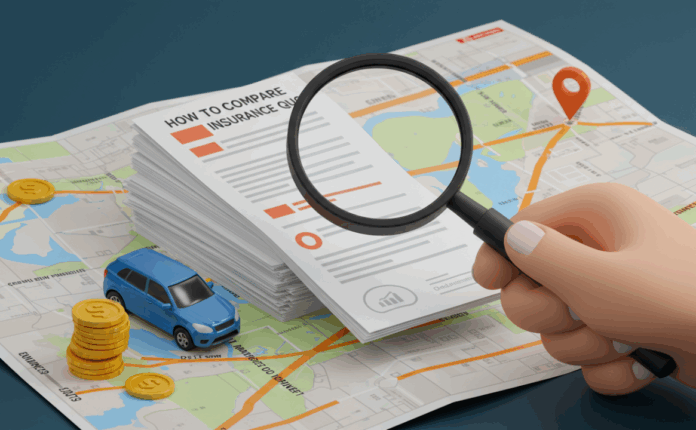Insurance is more than just a financial product—it’s a safety net designed to protect you from life’s uncertainties. Whether you’re safeguarding your health, home, or vehicle, having the right coverage can mean the difference between recovering smoothly from a setback or facing overwhelming costs. In this article, we’ll dive into the essentials of insurance, exploring its fundamentals, types, and practical strategies to make informed decisions. By the end, you’ll have actionable insights to navigate the insurance landscape confidently.
What Is Insurance?
At its core, insurance is a contract between you and an insurer (a company that provides the coverage) where you pay regular premiums in exchange for protection against specific risks. If a covered event occurs—such as an accident, illness, or natural disaster—the insurer steps in to cover the financial losses, up to the policy limits.
Think of it like pooling resources: Your premiums, along with those from many others, create a fund that the insurer uses to pay claims. This system spreads the risk across a large group, making it affordable for individuals. Insurance isn’t about predicting the future but preparing for it, ensuring that one unfortunate event doesn’t derail your financial stability.
Key elements of any insurance policy include:
- Premium: The amount you pay, usually monthly or annually.
- Deductible: The out-of-pocket cost you cover before the insurer pays.
- Coverage Limits: The maximum amount the insurer will pay for a claim.
- Exclusions: Events or situations not covered by the policy.
Understanding these terms is your first step toward demystifying insurance and avoiding surprises.
Types of Insurance: Tailoring Coverage to Your Needs
Insurance comes in various forms, each addressing different aspects of life. Selecting the right type depends on your lifestyle, assets, and priorities. Here’s a breakdown of the most common categories, with practical examples to illustrate their value.
Health Insurance
Health insurance covers medical expenses, from routine check-ups to major surgeries. In many countries, it’s essential for accessing affordable care. For instance, if you face an unexpected hospital stay, this coverage can prevent bills from skyrocketing into tens of thousands of dollars.
Actionable tip: Look for plans that include preventive services like vaccinations and screenings at no extra cost. Compare options based on your network of doctors—staying in-network can save you 20-50% on costs.

Auto Insurance
This protects against damages or liabilities from vehicle-related incidents. Minimum coverage is often legally required, but opting for comprehensive policies adds protection for theft, vandalism, or weather damage.
Real-world insight: If you’re financing a car, lenders typically mandate collision and comprehensive coverage. To choose wisely, calculate your vehicle’s value and driving habits—urban drivers might prioritize uninsured motorist protection.
Homeowners or Renters Insurance
Homeowners insurance safeguards your property and belongings against perils like fire, theft, or storms. Renters insurance, a lighter version, covers personal items in a leased space without insuring the building structure.
Detailed advice: Inventory your possessions with photos or a spreadsheet to streamline claims. Consider flood or earthquake endorsements if you live in prone areas, as standard policies often exclude them.
Life Insurance
Life insurance provides a payout to beneficiaries upon your death, helping cover funeral costs, debts, or lost income. Term life (for a set period) is ideal for young families, while whole life builds cash value over time.
Pro tip: Use an online calculator to estimate needed coverage—aim for 10-15 times your annual income. Shop during open enrollment periods for better rates, and avoid buying more than you need to keep premiums manageable.
Other Specialized Types
- Disability Insurance: Replaces income if you’re unable to work due to injury or illness—crucial since health issues affect about 1 in 4 working adults.
- Umbrella Insurance: Extra liability coverage that kicks in after your primary policies max out, perfect for high-net-worth individuals.
- Travel Insurance: Covers trip cancellations, medical emergencies abroad, or lost baggage for worry-free vacations.
Mix and match based on your situation; for example, freelancers might prioritize disability alongside health coverage.
How Insurance Works: From Policy to Payout
The insurance process is straightforward but requires attention to details. Start by shopping around: Gather quotes from multiple providers using online comparison tools. Review policies for coverage gaps, then purchase and pay premiums to activate protection.
When a claim arises:
- Report Promptly: Contact your insurer within the required timeframe (often 24-72 hours for emergencies).
- Document Everything: Take photos, gather witness statements, and keep receipts.
- File the Claim: Submit forms with evidence; an adjuster will assess damages.
- Receive Payout: Funds arrive after approval, minus your deductible.
Insight: Building a good payment history can qualify you for discounts—paying premiums annually often saves 5-15%. Regularly review your policy annually, especially after life changes like marriage or a new job, to adjust coverage.
Benefits of Having Insurance: Beyond Financial Protection
Insurance offers peace of mind, but its advantages extend further. Financially, it prevents bankruptcy from high-cost events; for example, a single car accident can cost $20,000+ without coverage. Legally, it fulfills requirements for driving or homeownership.
On a broader scale, insurance promotes responsible behavior—knowing you’re covered encourages safer driving or home maintenance. It also supports community recovery after disasters, as insurers contribute to rebuilding efforts.
Actionable value: Bundle policies (e.g., auto and home) for multi-policy discounts, potentially saving 10-25% on premiums. Track your claims history to negotiate better rates at renewal.
How to Choose the Right Insurance: Step-by-Step Guidance
Selecting insurance can feel overwhelming, but a structured approach helps. Follow these steps:
Assess Your Risks
Evaluate your assets, health, and lifestyle. Do you own a home? Travel frequently? Have dependents? Prioritize high-risk areas first.
Compare Providers and Policies
Use independent rating sites to check insurer reliability (e.g., financial strength scores). Read reviews for claims handling efficiency. Focus on:
- Cost vs. Coverage: Higher deductibles lower premiums but increase out-of-pocket risks.
- Customer Service: Opt for 24/7 support and easy digital claims.
- Add-Ons: Customize with riders like roadside assistance for auto.
Budget Wisely
Aim to spend no more than 5-10% of your income on premiums. Factor in potential rate hikes—lifestyle changes like quitting smoking can reduce health premiums by up to 50%.
Consult Experts
Speak with an independent agent for unbiased advice, or use online tools for quick quotes. Always read the fine print to understand exclusions.
By following this, you’ll secure coverage that fits without overpaying.
Common Mistakes to Avoid When Dealing with Insurance
Even savvy consumers slip up. Here’s how to sidestep pitfalls:
- Underinsuring: Don’t skimp—replace possessions at current value, not what you paid originally.
- Ignoring Renewals: Auto-renewal is convenient, but review terms yearly to catch changes.
- Filing Frivolous Claims: Small claims can raise premiums; pay minor deductibles yourself.
- Not Updating Info: Failing to report changes (e.g., address move) can void coverage.
- Shopping Only on Price: Cheaper isn’t always better; balance with quality service.
Avoid these, and you’ll maximize your policy’s effectiveness.
FAQ: Answering Your Top Insurance Questions
What Happens If I Can’t Afford My Premiums?
Contact your insurer immediately—they may offer payment plans or hardship deferrals. Lapsing coverage can lead to fines or higher future rates, so explore options like reducing coverage temporarily.
How Do I Know If I Need More Coverage?
Reassess after major events (e.g., buying a home). Use free online needs calculators from reputable sources to estimate gaps. If your current policy’s limits feel insufficient for worst-case scenarios, upgrade.
Can Insurance Rates Change Unexpectedly?
Yes, due to factors like inflation, claims history, or market changes. Shop around at renewal and maintain a clean record (no at-fault accidents) to keep rates stable. In regulated markets, increases require justification.
Is Insurance Tax-Deductible?
In many places, health insurance premiums for self-employed individuals are deductible. Check local tax laws or consult a professional—deductions can lower your taxable income significantly.
What Should I Do After a Denied Claim?
Review the denial letter for reasons, then appeal with additional evidence. If unresolved, contact your state’s insurance department for mediation. Persistence often overturns unfair denials.



